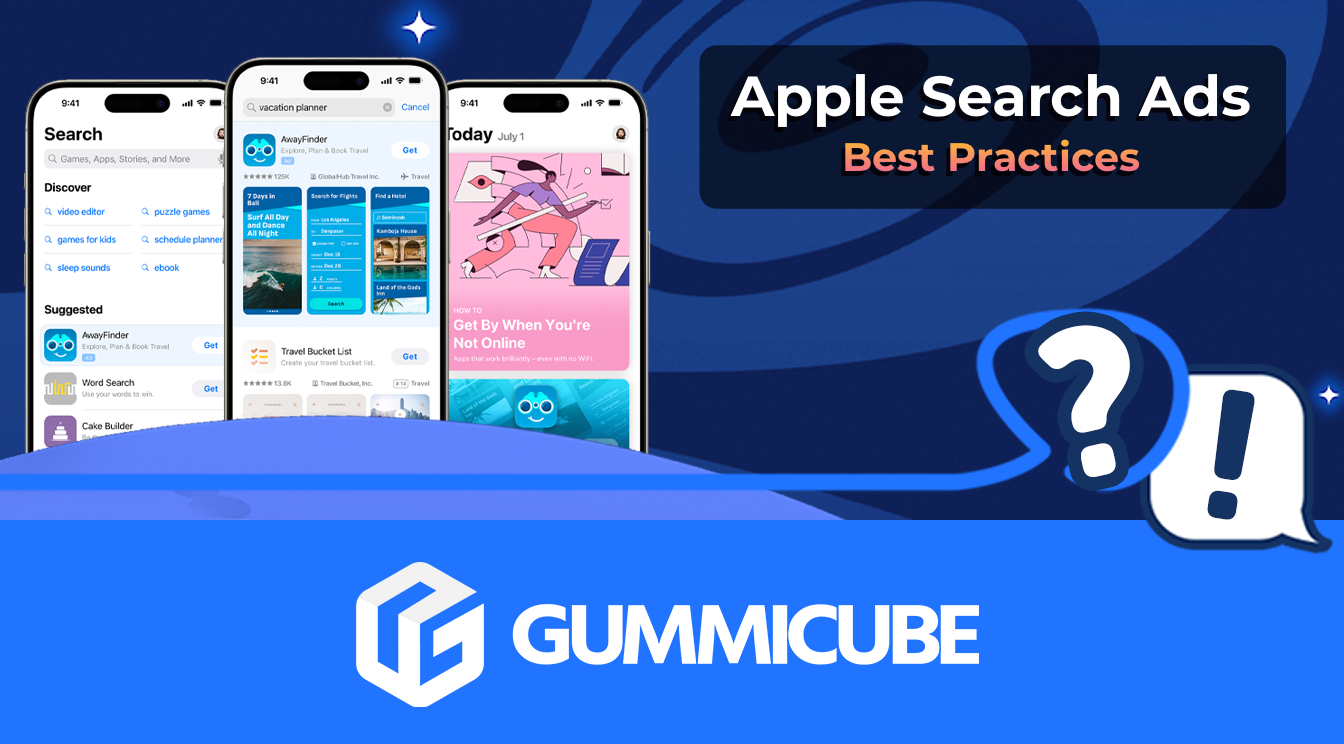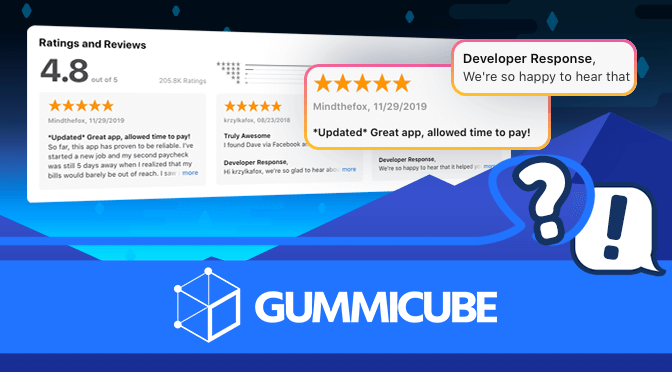
5 Best Practices for Apple Search Ads
Posted on July 3rd, 2024
Are you leveraging Apple Search Ads the right way? Take a look at these recommendations to optimize your paid campaigns and target the right users.

Reaching and converting users is an important aspect of App Store Optimization, but retaining them is just as important. When users leave app store reviews, properly responding can make the difference between retaining users (as well as potentially converting new ones) and losing them. Developers should understand the best practices for responding to app store reviews and how it can make a difference.
Before users download an app, they will typically check the app store reviews - 59% of users check reviews before installing. Additionally, 80% of users don’t trust apps with ratings below four stars (this means that any three-star reviews saying “this is a neutral rating until I decide if I like it” are detrimental and should be addressed).
An app’s reviews also factor into its placement in search results. Too many negative reviews will drag an app’s rankings down, while positive reviews can give it an edge over lower-rated competitors.
Replying to app store reviews can help mitigate damages from issues within the app, identify user concerns and improve user confidence. Flipping a negative review to a positive can benefit your overall rating, so each concern should be addressed. Additionally, a user about to post a negative comment might refrain if they see you’ve already addressed it in another response.
It’s important for developers to respond to all their negative reviews for proper reputation management, although replying to positive reviews can be helpful as well.
Responding to reviews lets users know you’re paying attention. Even replying to a positive review with gratitude can help improve user relations. Sometimes users will leave a positive review but leave a lower star rating. In cases like this, asking if there’s anything you can do to improve the rating can nudge them towards leaving a higher rating.
When users leave negative app store reviews, it’s of the utmost importance that their reviews and concerns are addressed. Be sure to keep these best practices in mind:
For instance, if a user reports that the app is crashing when they go to a certain page, a proper response could thank them for informing you, apologize for the issue and assure them it’s being addressed. Make sure your response lets the user know they are being paid attention to and aren’t just getting a generic response.
Google Play has suggested replies for app store reviews, but those are template responses. They can make a decent starting point for replies but should still be customized to each user review and concern.
When users leave app store reviews, they typically express concerns with a certain aspect of the app. Reading and responding to reviews helps developers identify new or recurring issues they can address. If the app has encountered a new bug, it’s likely that the app will see new app store reviews complaining about the issue.
There could even be a recurring issue from users not fully understanding the app. For example, if there are several complaints about unexpected subscription fees, it could mean that the developers need to update the app store description to make the subscription terms clearer.
While there will always be reviews that simply state “This app sucks,” you can still ask for elaboration. It could be that what “sucks” is a simple issue that you can fix.
Customer engagement shows that the developer cares and is actively attempting to improve any issues. Users that know a fix is on the way may be more likely to check back for the update than uninstalling entirely. Engaging with positive app store reviews also shows that the developer is appreciative of the users and builds a better relationship. This can help keep users active on the app.
Similarly, when new users see that the app developer is responding to reviews, that builds confidence in the app. It signals to users that the developer is actively involved in addressing any issues that may arise and care about what their users think.
Responding to app store reviews is important for an app’s reputation management and App Store Optimization. It can help retain the app’s rankings and conversions, help developers identify issues with the app and build user confidence. Responding to each user’s app store review may take time and effort, but the end result can benefit the app.
Want more information regarding App Store Optimization? Contact Gummicube and we’ll help get your strategy started.

Are you leveraging Apple Search Ads the right way? Take a look at these recommendations to optimize your paid campaigns and target the right users.

Ghostly happenings are among us... and in your app listing too? If you aren't leveraging the power of app seasonality to make relevant tweaks to your store listing you're leaving precious engagement and conversions on the table.

Developers on the iOS App Store should plan in advance of the upcoming Holiday Schedule to allow enough time for apps to get approved during the busy holidays.